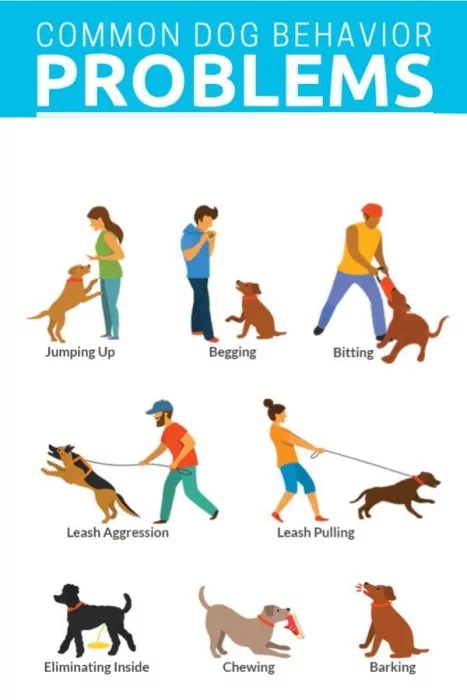Unlock Your Dog's Prospective: Proven Pet Dog Training Strategies for Success
Efficient canine training is a nuanced procedure that pivots on understanding canine habits and utilizing clinically backed methods. By including favorable reinforcement, establishing clear commands, and prioritizing socialization, pet proprietors can cultivate an efficient connection with their pet dogs.
Understanding Pet Actions
Comprehending dog habits is vital for efficient training and fostering a positive partnership between pets and their owners. A thorough understanding of canine body language, vocalizations, and social communications is vital for identifying their feelings and requirements. Pet dogs connect mostly with non-verbal hints; as an example, a wagging tail may show exhilaration, while pinned ears can signify fear or submission.

Moreover, ecological variables play a significant duty fit a canine's habits. Modifications in routine, new surroundings, or the visibility of unknown people can lead to stress and anxiety or stress and anxiety in pets. Recognizing these triggers allows owners to reduce unfavorable responses and establish appropriate training strategies.
Ultimately, a deep understanding of canine behavior lays the structure for successful training methods, improving both behavior and the general bond in between the canine and its owner. Dog training. This understanding is vital for cultivating a well-adjusted, satisfied canine friend
Positive Support Methods
Effective training counts heavily on favorable reinforcement strategies, which have been revealed to generate considerable lead to forming desired actions in canines. This strategy includes compensating a canine for showing specific habits, thereby boosting the likelihood that these habits will be repeated. Incentives can take various kinds, including deals with, praise, playthings, or playtime, depending upon what encourages the individual pet.

It is crucial to slowly phase out incentives as the pet dog learns the habits, transitioning to intermittent support. This technique keeps the habits over time while protecting against reliance on consistent benefits. By concentrating on favorable support, fitness instructors can grow a relying on connection with their canines, advertising a healthy and participating training environment that boosts general obedience and efficiency.
Establishing Regular Commands
An essential facet of successful pet training is the establishment of constant commands. Uniformity in commands is critical for reliable communication between the pet and the trainer. When commands are consistent, pets discover to link specific words with wanted behaviors, which speeds up the training procedure and enhances understanding.
To establish regular commands, it is vital that all relative utilize the very same terminology and gestures. If one individual uses "sit" while one more claims "sit down," it can create confusion for the pet. Select clear, distinct words for commands and make sure every person associated with the canine's training follows these selections.
In addition, repetition is key. Strengthen commands with constant technique, making sure that the pet dog obtains enough opportunities to react appropriately. When a dog successfully complies with a command, instant favorable support needs to adhere to. This can be in the form of treats, praise, or playtime, solidifying the connection between the command and the action.
Lastly, hold your horses. Establishing constant commands takes some time and initiative. With commitment and quality, you will certainly assist your pet dog establish a strong understanding of expectations, ultimately leading to a well-behaved buddy.
Socialization and Exposure
Socializing a dog is essential for fostering a well-adjusted and confident friend. This procedure includes exposing your dog to a range of settings, individuals, and other pets to create their social skills and flexibility. Early socializing, preferably between the ages of three to fourteen weeks, is essential, as it prepares for a pet's future habits.
Throughout socialization, aim to give positive experiences in various settings, such as parks, active streets, and homes with various other animals. Present your canine to numerous stimuli, consisting of noises, views, and smells, guaranteeing that each experience is gratifying. This direct exposure helps minimize worry and anxiousness, paving the means for a more resistant dog.
Involving in controlled group play sessions with other pet dogs can likewise boost social abilities, teaching your pet suitable interactions and limits. Focusing pet care courses on socializing will dramatically add to your pet's total joy and behavior throughout their life.
Conquering Common Training Difficulties

One more frequent problem is diversion. Pets may battle to focus in active or unfamiliar settings. Progressively desensitize your dog to disturbances by starting training in a peaceful setting and gradually introducing even more stimulations as they become skillful (dog training near me). Favorable support techniques, such as treats and appreciation, can keep motivation and focus.
In addition, behavioral issues like jumping or extreme barking can end up being discouraging. Address these by educating different behaviors, such as sitting calmly when greeting guests. Consistency and persistence are important; strengthen wanted actions consistently and avoid scolding, which can result in confusion.
Finally, acknowledge you can try these out that each canine is unique, and training timelines may vary. Dressmaker your technique to your pet's specific demands, and look for expert assistance if required. With determination and the best techniques, conquering these obstacles can bring about a trained, delighted canine buddy.
Conclusion
In conclusion, opening a pet's prospective requires an extensive approach that includes an understanding of canine habits, the application of positive reinforcement techniques, and the facility of constant commands. Early socialization and direct exposure to varied environments further boost a canine's versatility and self-confidence. By resolving usual training challenges with customized approaches and persistence, a cooperative and unified connection in between canine and trainer can be promoted, ultimately causing a well-behaved friend with the ability of thriving in numerous situations.
Reliable canine training is a nuanced procedure that hinges on recognizing canine behavior and using scientifically backed methods.Understanding pet dog behavior is crucial for efficient training and cultivating a positive connection in between canines and their proprietors.Effective training depends greatly on positive reinforcement strategies, which have been shown to yield significant outcomes in forming desired look at this site habits in pets. When commands are uniform, pet dogs find out to associate certain words with wanted behaviors, which speeds up the training procedure and boosts understanding.
In verdict, unlocking a pet's potential necessitates a detailed strategy that incorporates an understanding of canine habits, the application of favorable support techniques, and the establishment of constant commands.